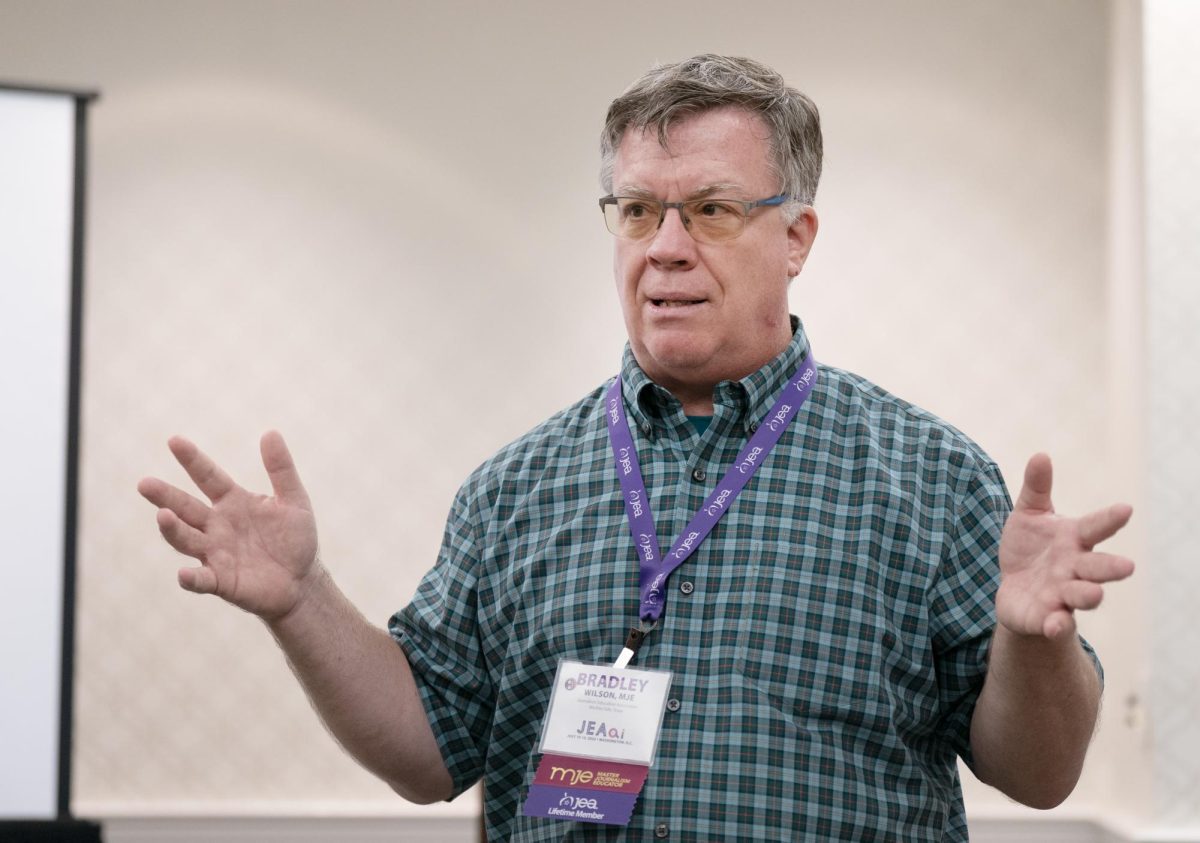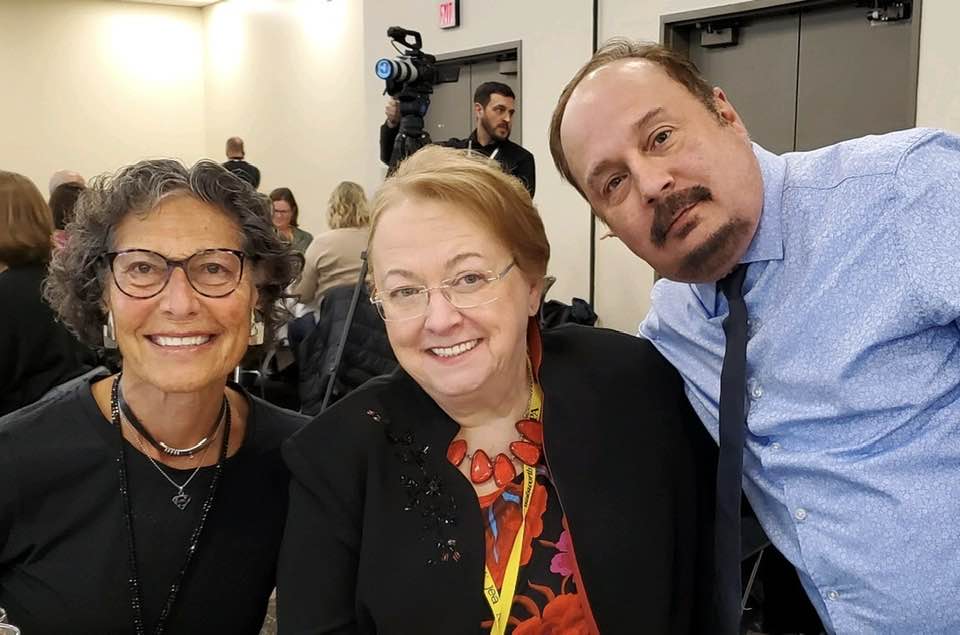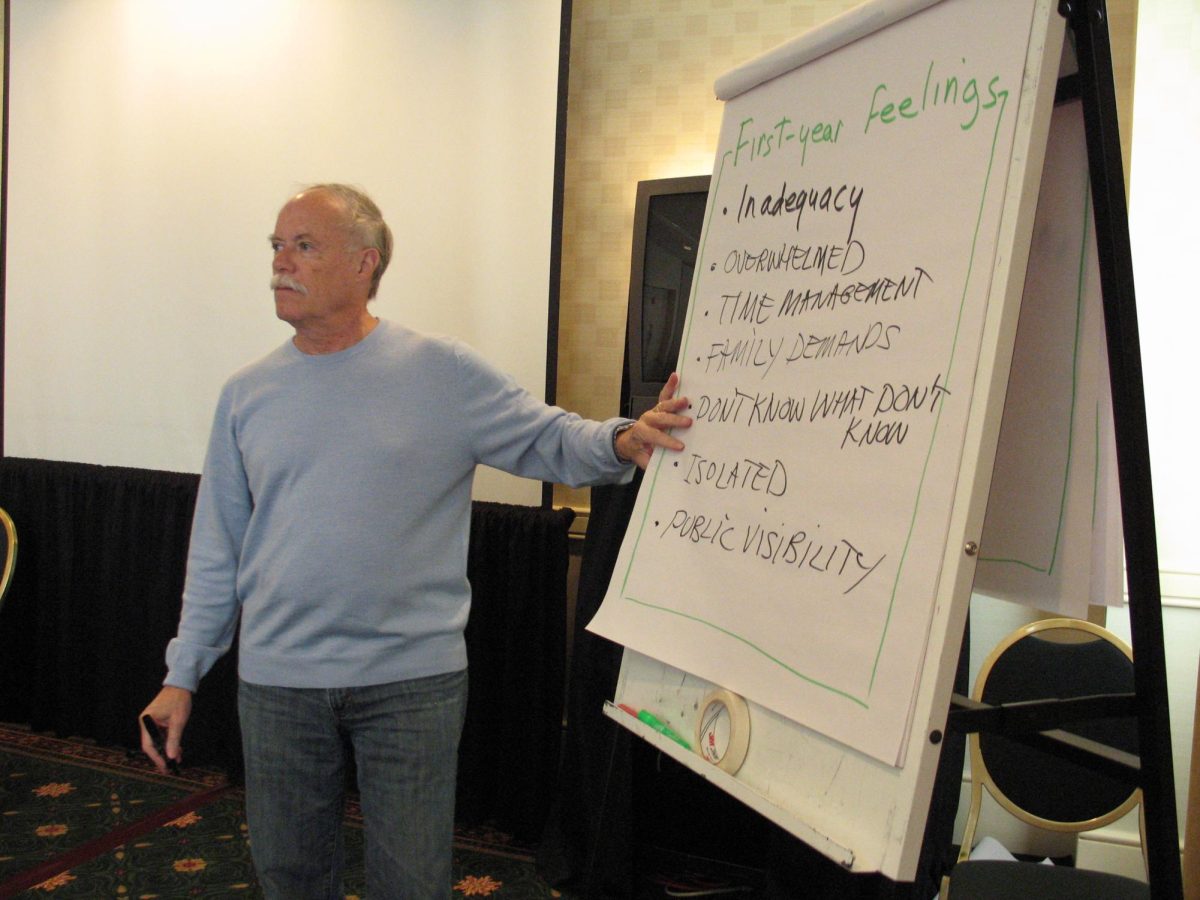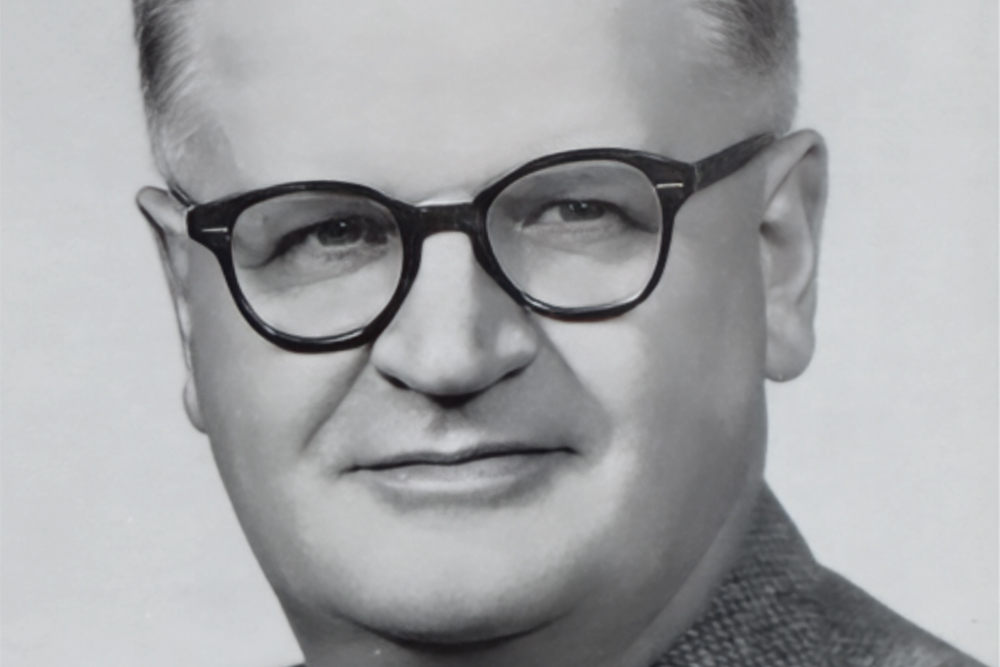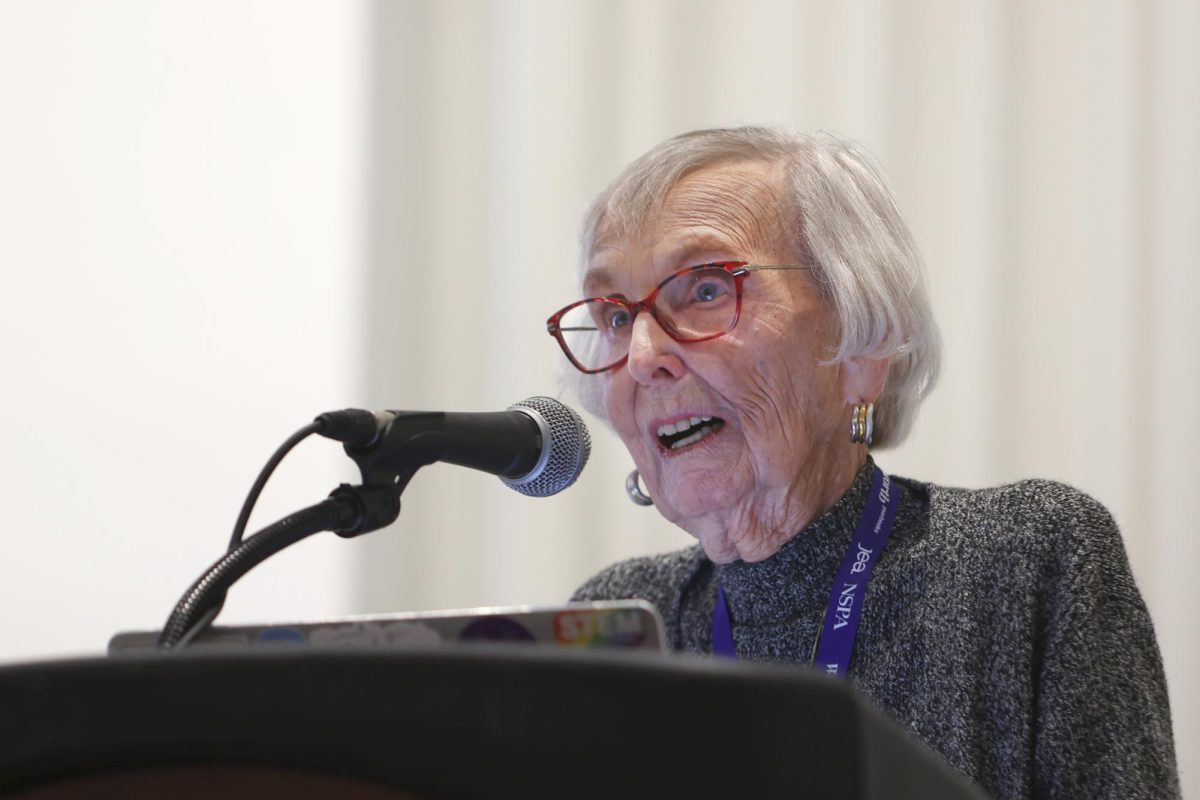Thank you. A simple, genuine thank you.
That’s all it takes to get Bradley Wilson, 2006 Carl Towley recipient, to help create a membership data base, to teach as many sessions as are needed, to help coordinate the logistics of a convention awards ceremony, to offer unlimited help to those who ask for it and to create 104 issues of JEA’s magazine — Communication: Journalism Education Today, more commonly known as C:JET.
He’s a bit of a Renaissance man with an interest in almost everything. He describes himself on his website as an editor, educator and a photojournalist. Of course, photography is his first love but he has also excelled as a euphonium player, researcher, and for more than 20 years an emergency medical technician — intermediate, the last 11 of them at Cary Area EMS where he was awarded that organization’s highest honor, Squadsperson of the Year, and life membership.
His journey into scholastic journalism started in a high school economics class. The assignment was to study a local business and write a profile on the business. He chose the Westlake Picayune, the local newspaper. Run by a husband – and – wife team, the paper was “community journalism at its finest” and Wilson got his first taste of journalism.
“What I really liked was being first with information to share with readers,” Wilson said. “I liked it so much I stayed in touch, and from 1981-1987 I was the head photographer.”
As an undergraduate at the University of Texas at Austin, Wilson’s role in media expanded to include his interest in management. He served as president of the Board of Directors for Texas Publications which initially included The Daily Texan newspaper and the Cactus yearbook. By the end of his tenure, the organization grew to include radio, KVRX.
He taught at two high schools, attended three universities and earned a Ph.D. in public administration from North Carolina State where her taught and advised award-winning publications. In 1993 he joined the marketing department of Taylor Publishing Company. A self-professed techie, he was at home managing the technology branch where he pioneered the technical support/customer service division for desktop publishing. He also led Total Quality Management teams and re-engineering process teams that resulted in a new $2.5 million production environment.
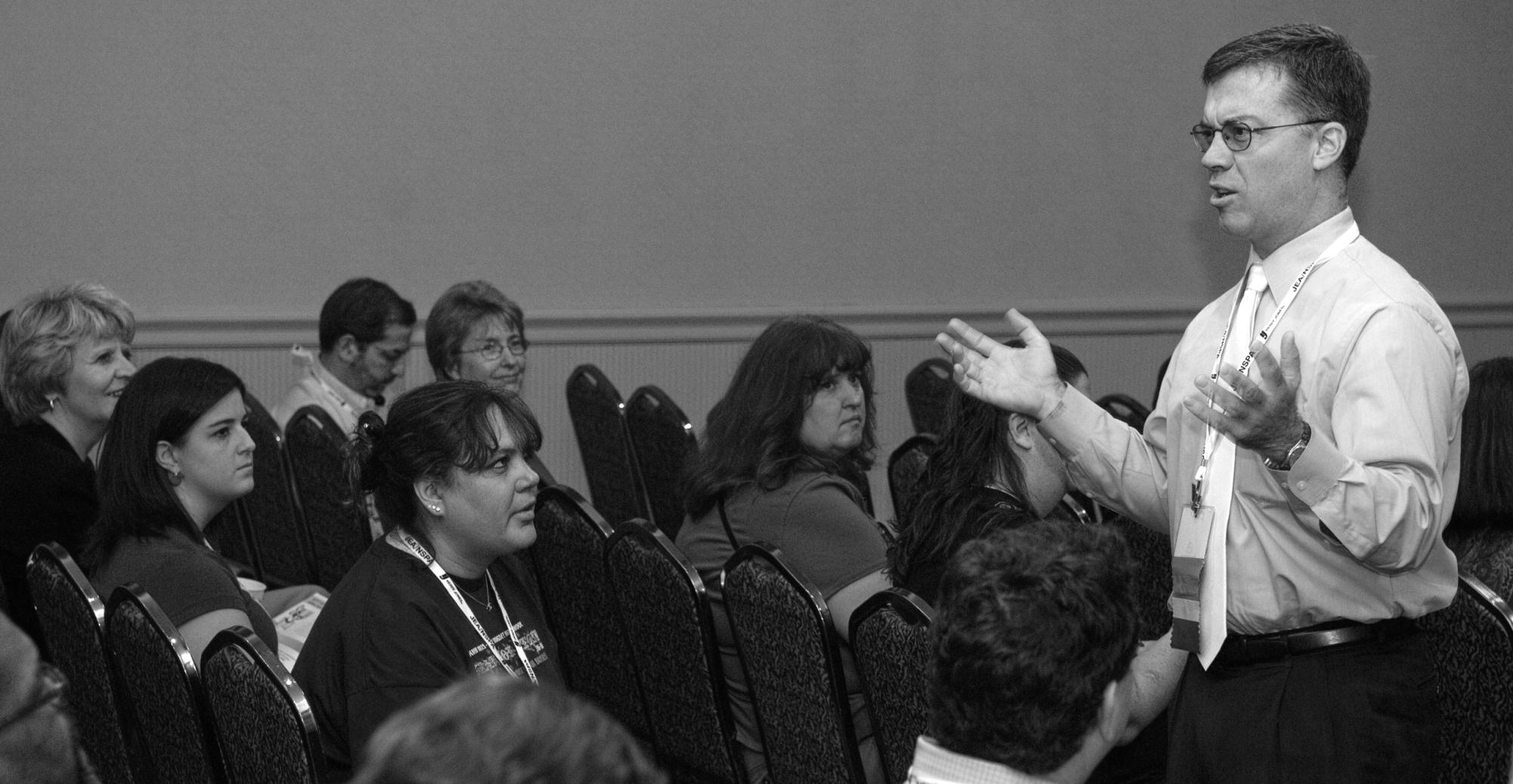
Wilson was well prepared in 1997 to handle the management aspects of his job as assistant academic director of the Texas University Interscholastic League and then in 1999 as executive director of National Press Photographers Association. But he returned to the campuses of Kansas State University, North Carolina State University and Midwestern State University to work with students and student publications.
His favorite job, editing C:JET magazine, pays little but allows him to use his management, writing, photography and design skills to create a product that serves journalism educators at all levels of experience.
“C:JET is fun to do,” Wilson said. “People never say ‘no’ when I ask them to write for the magazine because journalism teachers are anxious to share and make the profession better.”
Wilson’s first contribution to the magazine was in 1996, volume. 30, Number 2 when Molly Clemons, then C:JET editor and 1980 Carl Towley award recipient, asked him to write two articles “Going Digital,” and “Digital Ethics.”
“Those were pretty trendy topics,” Wilson said. “C:JET has always held its own in terms of strong content and has always offered coverage teachers could use.”
To generate fresh content, Wilson constantly checks social media posts, seeks what is new at conventions, listens to advisers and students talking about favorite convention sessions, frequents the JEA Digital site and the JEA email distribution list
“I want to give information that will be helpful and meaningful to teachers. Something they can use now or save for use later,” he said. “Every issue should have something for a new teacher and something for the teacher who has been at it for 20 years. Cutting-edge topics like AI – we have three AI stories for the next issue — should keep advisers up to date.”
Wilson said some things about the magazine should not change.
“The print format is a value because some teachers collect copies of it their whole career and print stands the test of time,” he said. Plus, most of our members are in the business of print so that’s comfortable for them.”
The quality of the publication should remain high especially when it comes to editing.
“Howard Spanogle (1993 Carl Towley recipient) made a big difference in how clean the magazine is. Now we have lots of eyes proofing the copy and we spend six weeks on editing and only two weeks on production. I would rather be right and thorough than first and sloppy. He taught me to have an attention to detail I just didn’t have before.”
While print may be the format of choice for the magazine, Wilson said the biggest change is a comprehensive online database that will be available with the launch of the new JEA website.
“Thanks to Howard who financed the labor to set it up, users will be able to find any article that’s been in the magazine for at least the last 26 years,” Wilson said. “It can be searched by topic, by title, by date or by author. It’s a real game changer and it’s ready to go as soon as the new website is active.”
In the future, Wilson said JEA needs to stay on top of the changes happening in journalism and education.
“AI, for instance, will create artwork and lesson plans for you,” Wilson said. “It’s going to affect us in ways we are just beginning to see, and that’s scary.”
Rest assured we’ll have Wilson and C:JET to keep us informed about issues affecting scholastic journalism, and for that we offer a genuine “Thank you.”


